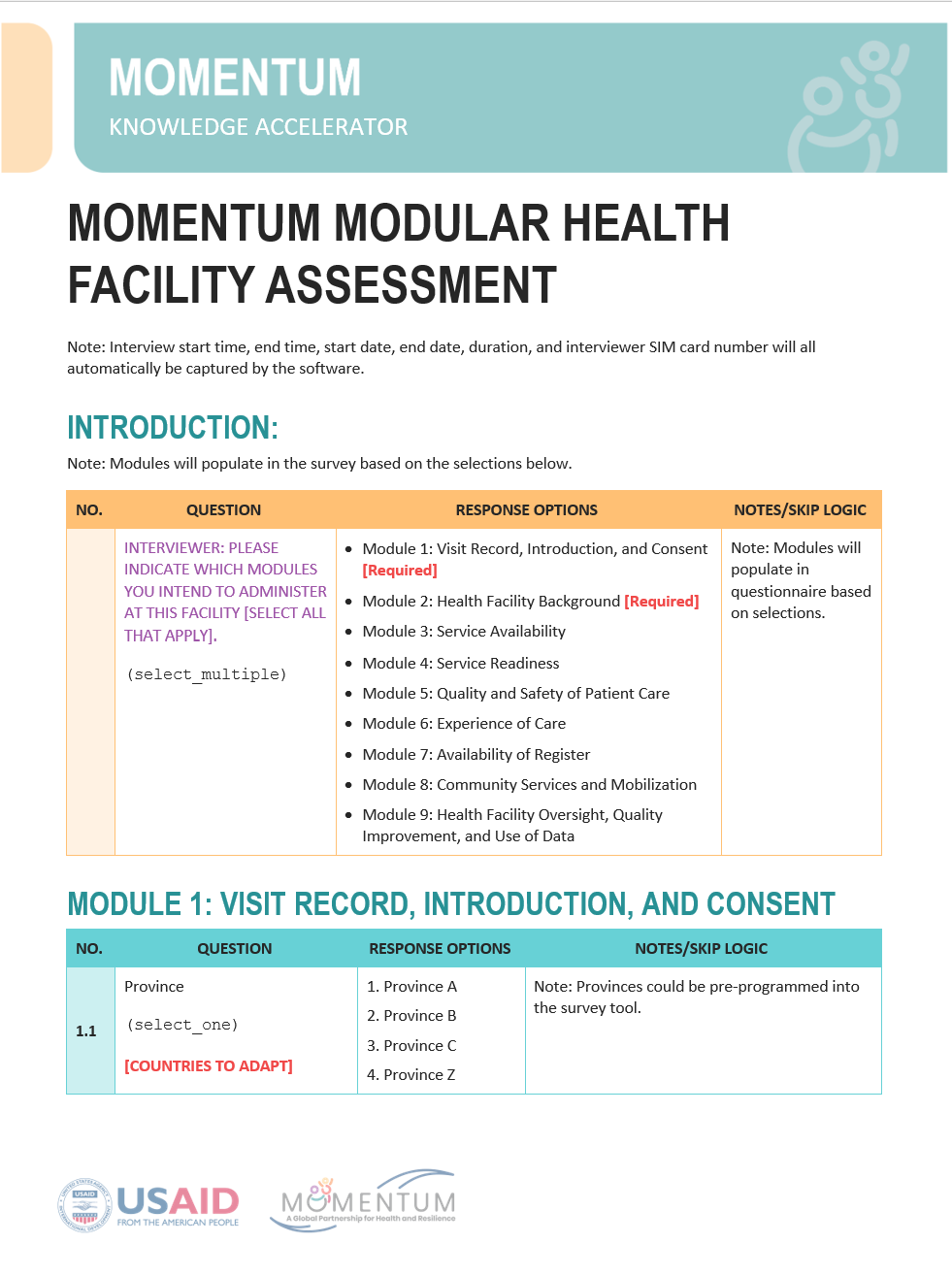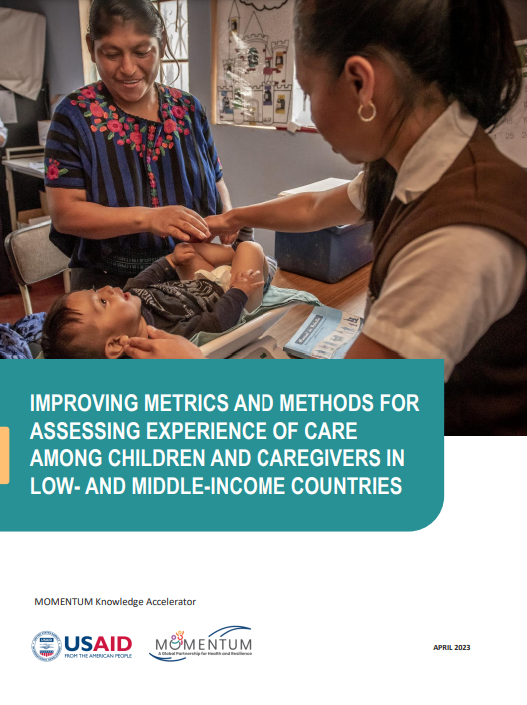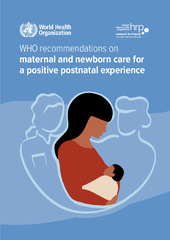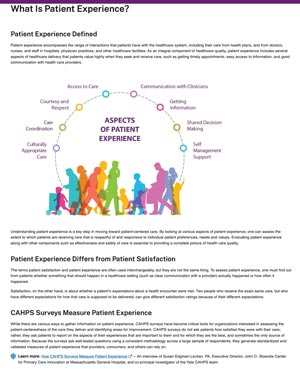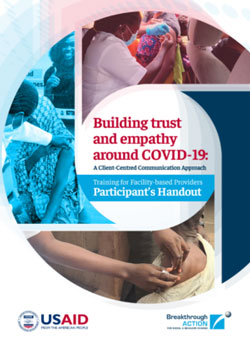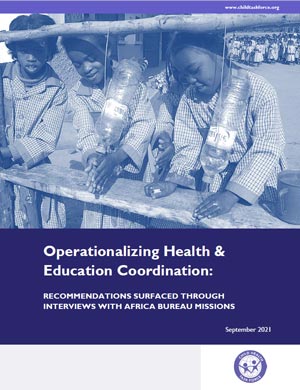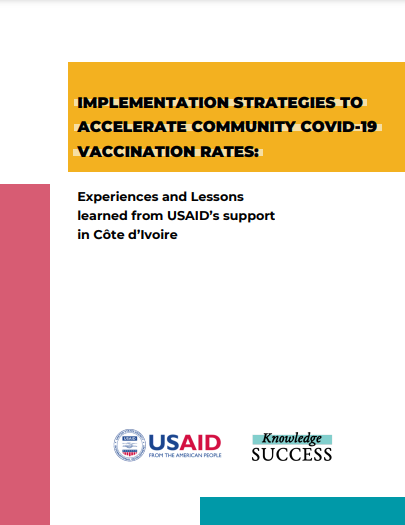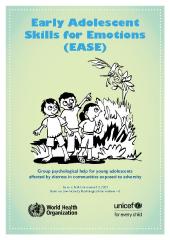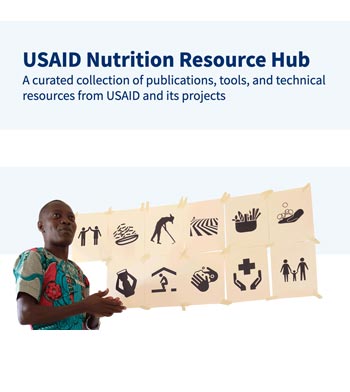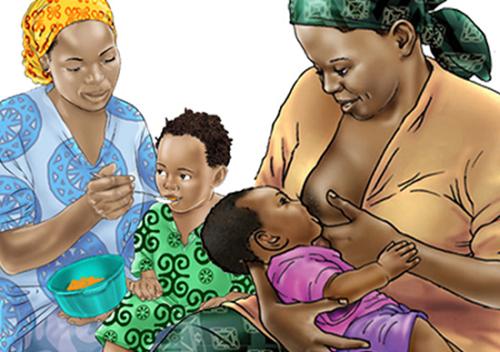Implementation Strategies To Accelerate Community Covid-19 Vaccination Rates: Experiences and Lessons learned from USAID’s support in Côte d’Ivoire
This success story highlights the lessons learned and recommendations for COVID-19 vaccine implementation in Côte d’Ivoire.
The Côte d’Ivoire Ministry of Health reported the country’s first case of coronavirus disease (COVID-19) on 11 March 2020. By March 2021, when the vaccine became widely available, over 32,000 cases had been detected (Our World in Data). Also in March 2021, the Ivorian government, in collaboration with its partners, launched a nationwide vaccination campaign to reach 70% vaccination coverage by September 2023 in alignment with WHO’s global targets.
Please download the document to read more.
Stratégies de mise en œuvre pour accélérer les taux de vaccination communautaire contre le COVID-19 : Expériences et leçons tirées du soutien de l’USAID en Côte d’Ivoire
Cette histoire de réussite met en lumière les leçons apprises et les recommandations relatives à la mise en œuvre du vaccin COVID-19 en Côte d’Ivoire.
Le ministère ivoirien de la santé a signalé le premier cas de maladie à coronavirus (COVID-19) dans le pays le 11 mars 2020. En mars 2021, lorsque le vaccin est devenu largement disponible, plus de 32 000 cas avaient été détectés (Notre monde en données). Toujours en mars 2021, le gouvernement ivoirien, en collaboration avec ses partenaires, a lancé une campagne de vaccination à l’échelle nationale pour atteindre une couverture vaccinale de 70% d’ici septembre 2023, en alignement avec les objectifs mondiaux de l’OMS.
Veuillez télécharger le document pour en savoir plus.
Source: Johns Hopkins Center for Communication Programs
Date of Publication: January 17, 2024

